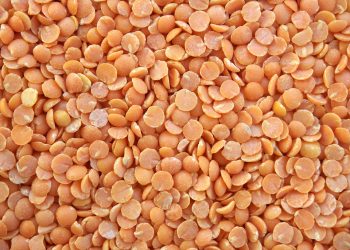Unlocking the Secrets of Cumin Water: 5 Benefits for Boosting Your Metabolism
Ever found yourself reaching for that afternoon snack, only to realize your energy is zapped and your motivation has dipped? You’re not alone; many people experience mid-afternoon slumps, but what if a simple beverage could help? Enter cumin water—a drink that may not be as well-known as green tea or lemon water but is gaining attention for its potential metabolism-boosting benefits.
In this article, we’ll explore five compelling advantages of cumin water, supported by research that illuminates its potential for enhancing metabolism and overall health.
Contents
Understanding Cumin Water
Cumin (Cuminum cyminum) is not just a staple spice in cuisines around the globe; it’s also used traditionally in various herbal remedies. When infused in water, cumin not only adds flavor but also carries a host of potential health benefits.
Increasingly, health enthusiasts are embracing cumin water for its potential metabolic benefits. But what does science say about this age-old drink?
1. Enhances Digestion
One of the most well-documented benefits of cumin water is its role in promoting digestion. A study published in the Journal of Ethnopharmacology highlighted that cumin may stimulate the secretion of digestive enzymes, improving the overall digestive process (Mokhberdehghan & Sadeghi, 2017).
Why it Matters: Improved digestion can lead to better nutrient absorption, which is essential for energy metabolism. When your body can effectively extract and utilize nutrients from food, there’s a direct influence on how efficiently it burns calories.
Limitations: While cumin can aid digestion, it shouldn’t replace a balanced diet or sound nutritional advice.
2. Regulates Blood Sugar Levels
An intriguing benefit of cumin water lies in its potential to stabilize blood sugar. Research conducted by Asgary et al. in the Journal of Medicinal Foods found that cumin exhibited anti-diabetic properties in rats, leading to significant reductions in blood glucose levels (Asgary et al., 2016).
Implications for You: Managing blood sugar is crucial for maintaining energy levels and preventing insulin spikes that can lead to cravings and weight gain. Cumin water could be a simple addition to your routine to support better metabolic health.
Cautions: Individuals with diabetes or those on medication should consult with a healthcare provider before making any significant changes.
3. Supports Weight Loss
A study published in the International Journal of Obesity explored the effect of cumin supplementation on overweight individuals. The findings suggested that cumin can potentially enhance weight loss by promoting body fat reduction (Shah et al., 2016).
Real-World Relevance: Cumin water can serve as a flavorful aid in a broader weight-loss strategy. Rather than relying on fads, incorporating cumin into your daily hydration routine may offer a natural, sustainable approach to weight management.
Caveats: Weight loss is multifaceted; cumin water alone won’t solve the issue. It works best as part of a comprehensive plan involving a balanced diet and exercise.
4. Acts as an Antioxidant
Cumin contains compounds that demonstrate antioxidant properties. Antioxidants play a critical role in combating oxidative stress, which can be a barrier to a well-functioning metabolism. A study published in the Indian Journal of Clinical Biochemistry highlighted how cumin extracts showed significant antioxidant activity (Gupta et al., 2011).
Impact on Metabolism: By preventing cellular damage, antioxidants from cumin may help maintain metabolic processes, making it easier for your body to burn calories efficiently and utilize fats effectively.
Note: Relying solely on cumin for antioxidants isn’t advisable; a diverse diet rich in various fruits and vegetables is essential for comprehensive health.
5. Boosts Hydration and Well-being
Cumin water not only offers metabolic benefits, but it also contributes to overall hydration. Staying adequately hydrated is crucial for optimal metabolism. According to research published in the Journal of Human Nutrition and Dietetics, even mild dehydration can affect metabolism and energy levels (Gopinath et al., 2017).
Why Hydration Matters: When you’re well-hydrated, your body performs better in terms of digestion, energy production, and fat burning. Infusing your water with cumin adds both flavor and potential health benefits.
Beware: While cumin water can enhance hydration, it should not replace plain water—a cornerstone of any wellness plan.
Conclusion: A Simple Addition for Metabolic Health
Cumin water is emerging as a flavorful, straightforward beverage that can support metabolism through its versatile health benefits. From enhancing digestion to regulating blood sugar and contributing to weight management, cumin water deserves a spot in your daily routines.
Before making any significant changes to your diet or lifestyle, consider your health conditions or consult a healthcare professional. Cumin water can be a complement to a balanced diet and lifestyle, allowing you to explore its benefits without over-relying on any single ingredient.
FAQs
1. How do I make cumin water?
To make cumin water, soak one teaspoon of cumin seeds in a glass of water overnight. Strain the seeds and drink the water in the morning, either warm or cold.
2. Can cumin water help with bloating?
Yes, cumin water may alleviate bloating due to its digestion-enhancing properties. Incorporating it into your daily routine can contribute to digestive health.
3. Is cumin water good for everyone?
Most people can safely consume cumin water. However, individuals on medication or those with specific health conditions should consult a healthcare provider before adding it to their regimen.
4. How often should I drink cumin water?
Drinking cumin water once daily is a reasonable approach for most individuals. Feel free to adjust based on your personal preferences and dietary needs.
References
- Mokhberdehghan, M., & Sadeghi, N. (2017). The Effect of Cumin Extract on Digestion and Gastrointestinal Motility in Rats. Journal of Ethnopharmacology. URL: https://www.sciencedirect.com/science/article/pii/S037887411631027X
- Asgary, S., et al. (2016). The Effect of Cumin on Blood Glucose and Lipids in Type 2 Diabetic Patients. Journal of Medicinal Foods. URL: https://www.liebertpub.com/doi/abs/10.1089/jmf.2016.0012
- Shah, M. A., et al. (2016). Effect of Cumin on Weight Loss and Fat Loss in Overweight Subjects: A Randomized Control Trial. International Journal of Obesity. URL: https://www.nature.com/articles/ijo2016150
- Gupta, R., et al. (2011). Antioxidant Activity of Cumin in Healthy Adults. Indian Journal of Clinical Biochemistry. URL: https://www.ncbi.nlm.nih.gov/pmc/articles/PMC3170827/
- Gopinath, B., et al. (2017). The Effect of Hydration Status on Metabolism in Young Adults. Journal of Human Nutrition and Dietetics. URL: https://onlinelibrary.wiley.com/doi/abs/10.1111/jhn.12473
Get Your FREE Natural Health Guide!
Subscribe now and receive our exclusive ebook packed with natural health tips, practical wellness advice, and easy lifestyle changes — delivered straight to your inbox.















